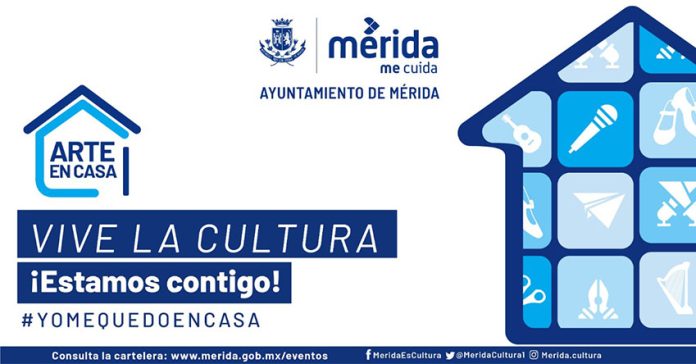Amid the repetition and drudgery of our current existence, it can be hard to conjure up even the very recent past. For the residents of Mérida, the Yucatán’s cultural hub, recalling the optimism of the “pre-virus” is an even more arduous challenge, and one that requires a level of cognition most of us have lost in the monotony of isolation.
There are, however, some leading lights of the city’s artistic scene that will remember the words of a still wide-eyed Mérida mayor, declaring that the capital of Yucatán will complete its journey to becoming a truly “avant-garde city.”
Big words. Slightly embellished words perhaps, but a reach that if not quite a confirmation of Mérida’s spot as the southeast’s city of art, certainly clinches the title for most ambitious. It’s this ambition that has recently set Mérida firmly on course to becoming a supportive and vibrant home to innumerous creatives; painters, musicians, filmmakers and artisans.
A formidable record remains from this self-belief in its own artistic capabilities with the first international art competition being confirmed back at the end of 2019, a large colonial house being reworked into a hub for incoming artists and cultural events, and an exhibition of 93 original Picasso works back in December. Over the last year especially, Mérida has constantly been applying one foot on the gas.
As the Covid-19 pandemic has developed, “nonessential” initiatives and programs in communities across the world have been put on the backburner. While local governments may be partially thankful for a scapegoat to blame for a lack of civic progress, they are also aware that the branding of the virus as a scapegoat in and of itself is an inherently ridiculous proposal — they need only point to its size and sharpened teeth to have these accusations laughed out of the door.

But Mérida has avoided this discourse entirely, instead opting to propel its campaign of cultural programs through the crisis, giving them a fighting chance of surviving the next few months and emerging on the other side.
“Arte en Casa” (Art at Home) is one such vision being realized not only in exceptional circumstances, but possibly because of exceptional circumstances. When the building blocks of this project were initially slotted together, its deployment in the context of mass quarantine and social distancing was a use none of the creators could have fully imagined.
Despite this, in the month of June Arte en Casa will continue to diffuse artistic and cultural content through social networks so that the overflowing cup of Yucateco art can be appreciated and enjoyed from isolation. Three hundred and thirty-four projects have been selected to be included in the program’s plethora of content, supporting the work and creativity of artists throughout the city.
Arte en Casa is taking off, with 160,000 followers on Facebook already and each video posted reaching more eager eyes — but perhaps the demand shouldn’t greet us as such a surprise. Mental health during lockdown has become a hot-button topic over recent weeks, as more of us in quarantine have been coming forward with the unique pressures associated with a lack of stimulation. We may have found it refreshing to begin with, but psychologists and mental health professionals alike have been professing the benefits, even the necessity, of dynamic and engaging stimuli.
The power of art in these instances is appreciated and well renowned, proven to boost energy levels and feelings of satisfaction and happiness, combatting the declining mental health prospects threatened by prolonged distancing. We know now that we’re up against a tide of depression, anxiety and stress induced by everything from financial insecurity to health worries, and grief at losing those close to us.
In the shadow of this mental health crisis, it’s important not only to offer the tools of distraction, (the likes of which a few scrolls through the landing pages of Netflix will show us are ubiquitous) but also positive, constructive, affirmative content. Community art, local theater, and personal literature, if made widely available, has the power to offer those in lockdown the ability to feel, if only momentarily, free.
We are in the midst of an unprecedented experiment in mass human psychology, and the Mérida model won’t magically solve our problems. It will be very easy to turn up the nose and question the benefit of streaming productions of The Cherry Orchard to the masses because, yes, it sounds and seems at first glance to be ineffectual and even slightly tokenistic.
The truth is, however, that access to provocative, challenging, and vital art is currently a twisted hose. We can easily forget the constant contact we used to have with art before the pandemic, simply by existing in the outside world. By democratizing artistic materials in Mérida, a semblance of normality has been allowed to return, and really, isn’t that what is needed at a time like this?
Jack Gooderidge writes from Campeche.
